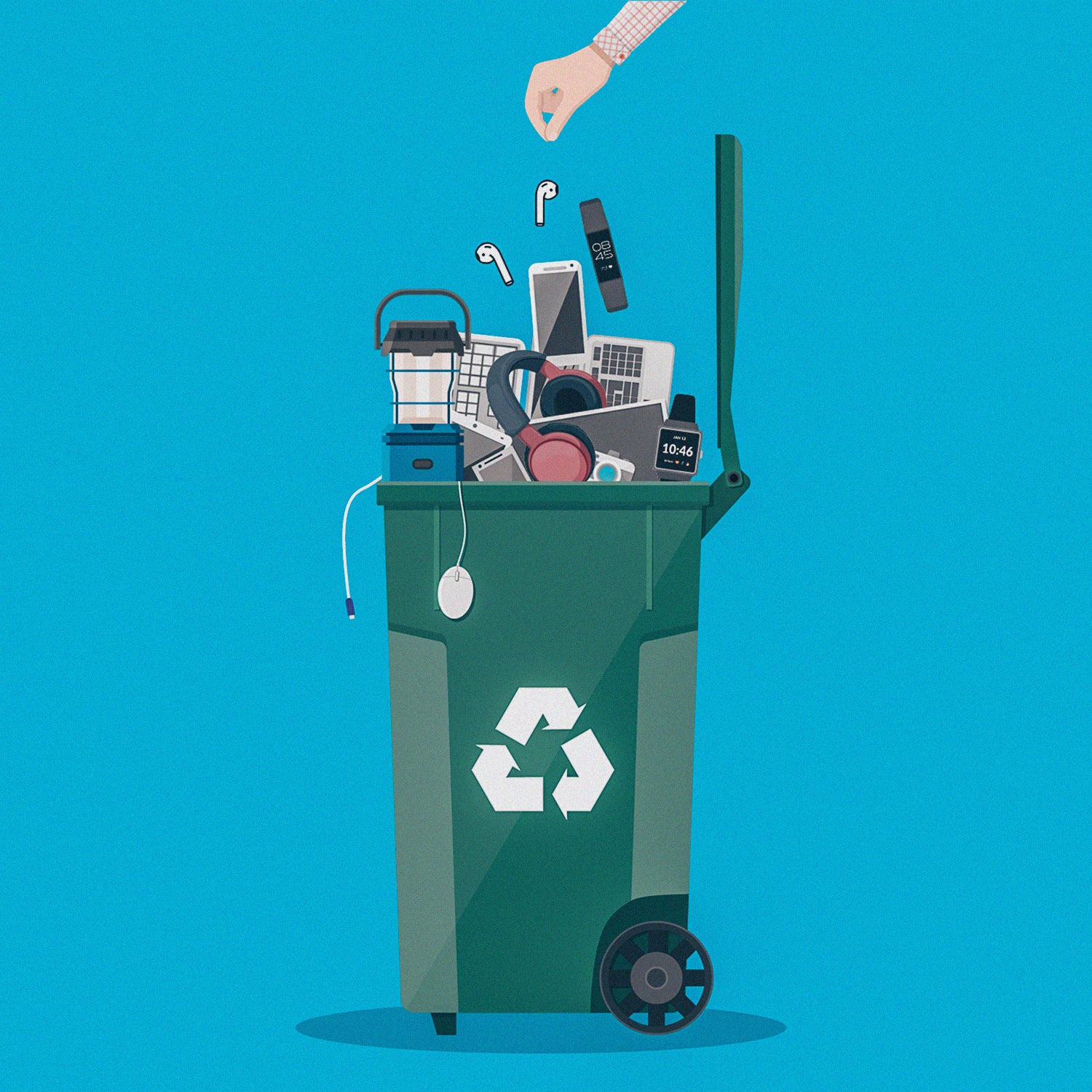Elevate Your E-Waste Management With R2 Certification: an Extensive Summary
One key approach to elevate e-waste monitoring methods is by acquiring R2 certification. By exploring the benefits and procedures connected with R2 accreditation, a much deeper understanding of exactly how it can reinvent e-waste monitoring techniques arises, shedding light on a path in the direction of sustainability and honest disposal methods.
Significance of E-Waste Administration

When e-waste is not handled correctly, these harmful compounds can seep right into the environment, triggering injury to wildlife and potentially going into the food web, posing threats to human wellness. Additionally, the improper disposal of e-waste adds to air pollution and greenhouse gas discharges, intensifying climate change and environmental deterioration.

Benefits of R2 Qualification

First of all, R2 accreditation improves credibility by showcasing an organization's dedication to lasting practices. It assures clients, partners, and stakeholders that the business sticks to stringent criteria for e-waste monitoring - r2 certification. This integrity can result in raised trust and boosted partnerships with customers who focus on ecological responsibility
Second of all, R2 qualification aids alleviate risks associated with incorrect e-waste disposal. By complying with the strict standards stated by the accreditation, companies can minimize the chance of information violations, ecological contamination, and legal consequences. This aggressive method safeguards the firm's track record and reduces potential liabilities.
Finally, R2 qualification shows a dedication to ecological stewardship - r2 certification. By responsibly managing digital waste with certified procedures, companies add to the preservation of sources, reduction of air pollution, and promo of a circular economic situation. This dedication not only profits the environment however likewise lines up with progressing customer assumptions for sustainable service techniques
R2 Certification Refine Summary
Having actually developed the benefits of R2 certification in promoting credibility, threat mitigation, and ecological stewardship, it is vital to now describe the thorough process associated with obtaining this certification. The R2 certification process begins with a complete testimonial of the company's operational plans and procedures to ensure compliance with the R2 standard. This initial assessment is essential in identifying any gaps that need to be resolved before proceeding further.
Once the organization's techniques line up with the R2 common demands, an additional info independent third-party auditor performs an on-site audit to assess the implementation and effectiveness of these methods. This audit includes a comprehensive review of documents, meetings with staff, and physical examinations of centers to confirm conformity.
Adhering to a successful audit, the company gets a qualification decision based upon the auditor's findings. If authorized, the company is approved R2 certification, showing its dedication to responsible e-waste administration. It is necessary to keep in mind that preserving R2 certification requires continuous compliance with the criterion's demands and regular audits to ensure ongoing adherence to finest techniques in e-waste recycling and disposal.
Key Standards for R2 Compliance
An important element of accomplishing R2 conformity is guaranteeing that all electronic waste (e-waste) processing facilities satisfy stringent environmental and security standards. To abide by R2 demands, organizations must stick to key standards that concentrate on liable e-waste administration methods. These standards consist of carrying out a documented environmental, health and wellness, and security monitoring system, making sure the secure handling of data-containing devices, and performing complete downstream due diligence to track the final location of e-waste materials.
In addition, R2 compliance requires the correct testing, refurbishment, and recycling of digital devices to prolong its helpful life and decrease environmental influence. Facilities looking for R2 certification need to additionally find focus on worker health and wellness by giving necessary training, personal protective tools, and a safe functioning setting. Furthermore, preserving in-depth documents of e-waste handling activities and regularly going through audits by approved accrediting bodies are crucial components of demonstrating continuous conformity with R2 requirements.
Effects of Lasting E-Waste Practices
The execution of sustainable e-waste practices according to R2 compliance not just ensures environmental and safety and security criteria are fulfilled but also dramatically impacts the general lifecycle of digital items. By sticking to R2 criteria, digital waste monitoring procedures end up being extra efficient, decreasing the ecological impact of electronic items. Sustainable e-waste practices assist in the proper disposal of digital components, guaranteeing that dangerous products are taken care of responsibly and do not finish up polluting the environment.
Moreover, embracing lasting e-waste techniques promotes the round economic situation by facilitating the recovery and reuse of beneficial materials from digital products. This not only preserves valuable sources but likewise decreases the need for raw product removal, decreasing the environmental impact of digital production. Furthermore, lasting e-waste techniques can add to work creation in the recycling and refurbishment fields, cultivating economic development while advertising ecological responsibility. Generally, the adoption of sustainable e-waste techniques under R2 qualification works as an important action in the direction of attaining an extra ecologically lasting electronics industry.
Conclusion
In final thought, executing correct e-waste monitoring techniques is important for ecological sustainability and source preservation. R2 certification plays an essential function in making sure responsible handling and disposal of electronic waste. By adhering to the strict criteria established forth by R2 requirements, companies can not only lessen their ecological impact however also add to an extra lasting future for generations ahead.
One key approach to elevate e-waste administration techniques is by obtaining R2 accreditation. By checking out the benefits and processes linked with R2 qualification, a much deeper understanding of just how it can reinvent e-waste monitoring approaches arises, dropping light on a path in the direction of sustainability and moral disposal practices.
The R2 certification procedure begins with a complete evaluation of the company's operational plans and treatments to make certain compliance with the R2 requirement. If approved, the company is granted R2 qualification, showing its commitment to accountable e-waste management. In general, the fostering of sustainable e-waste techniques under R2 qualification offers as a crucial step in the pop over to this site direction of achieving an extra ecologically lasting electronic devices sector.